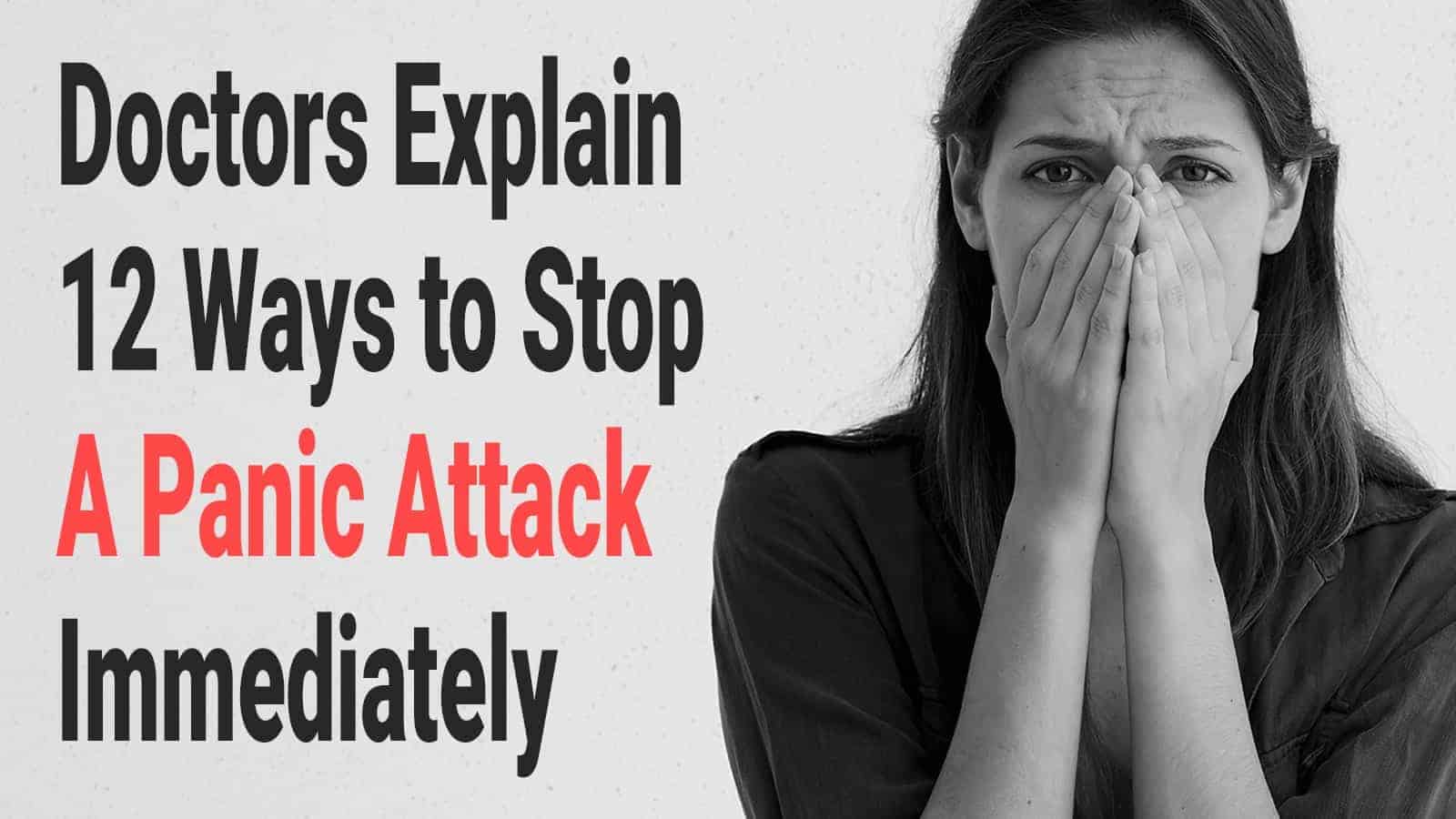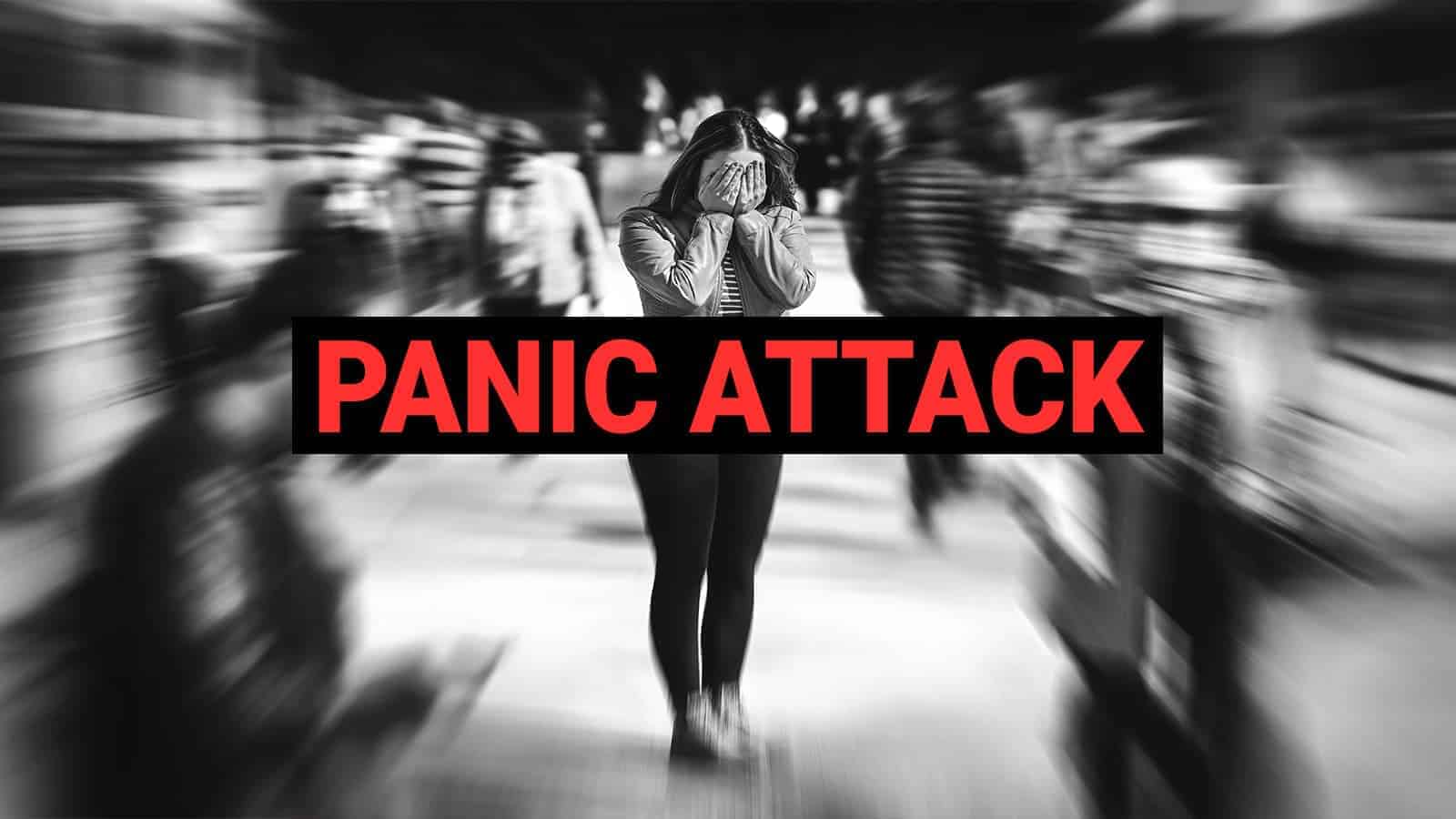Having anxiety attacks can be scary for a person with a panic disorder. The feeling comes on so suddenly, and they may not be able to think clearly enough to stop it from happening.
Dealing with something like that can be traumatizing. Many of those who struggle with panicking opt to manage symptoms naturally instead of taking the medicines available today.
If you have a friend, family member, or other loved one who is experiencing an anxiety or panic attack, it’s understandable that you want to help them feel better. However, their panic attack can be just as nerve-wracking for you as it is for them. You will probably be wondering what to do or say.
What you say is very important. Most people don’t mean any harm when they’re trying to be reassuring, but certain comments can be taken the wrong way by the person who is panicking. To help you out, here are 15 things you should never say to a person who has a panic disorder.
Never Say These 15 Things to Someone with Panic Disorder
1. Just calm down.
If they could calm down, they would. No one likes being an anxious mess. Your friend honestly can’t control it, and minimizing their inability to calm down will only make matters worse. Telling a person who is experiencing anxiety to “just calm down” is like telling someone underwater to “just breathe.” It’s not helpful at all.
2. Stop it! Everyone is looking at you.
Great. Now they’re panicking because they look like a fool in front of everyone, so they’re “double panicking.”
This phrase is not the right thing to say to someone with a panic disorder. They’re probably already embarrassed enough, and the thought of people watching them can be enough to push them into a panic attack. Just try to connect with them as if no one else is in the room.
3. Oh no, not again!
Saying something like this can make the person feel guilty over something they have no control of. This statement is sure to make the panic attack worse. It can also make the person feel like they are alone or that no one understands what they’re going through.
Try to understand that they aren’t having these attacks on purpose. It’s not attention-seeking. It’s a disorder. You must be understanding and assure them that you’re there for them.
4. It’s all in your head.
Technically, it is all in their head, but you shouldn’t say that to them. They don’t “feel” like it’s all in their head. To them, the anxiety is as real as you are.
A better way to put it is that anxiety is their reality. It’s something that they deal with regularly, and chances are the condition won’t ever go away (although your friend can learn to manage it).
5. You’re embarrassing yourself.
You don’t have to say this because a person that’s experiencing anxiety is already fully aware that they’re embarrassing themselves. Would you tell the drowning person that they’re drowning?
The better thing to do is to reassure them that no one is judging them and that they are in a safe place. Let them know that it’s okay for them to work out their feelings right where they are.
6. It’s not that bad.
You think it’s not that bad. To the person experiencing the anxiety, it’s pretty bad. They have an outburst that they can’t control. They’re losing control of their mental and physical self.
Losing control of your body is a scary feeling, especially if you must deal with it alone. Forget the reason that they’re anxious. The anxiousness itself is bad.
7. Stop overreacting.
Again, stressing the fact that an anxious person can’t control their anxiousness, they aren’t overreacting. When an anxiety attack hits, it’s very sudden. It’s not something that a person “wills” to happen. They can’t stop their anxiety any more than a person can stop an asthma attack.
Sure, there are triggers, but the triggers are usually things that would happen in everyday life. For example, a fender bender would upset most people. For people with a panic problem, this could be a trigger.
So, don’t tell them to stop overreacting. Be more understanding of what they are going through.
8. Just suck it up.
This is an insensitive thing to say to a highly stressed person, whether they have a panic disorder or not. People are entitled to their feelings, and it’s nice to have someone that cares about them enough to help them through it.
For people with panic disorders, they can’t suck it up. They must go through it. The situation may cause their anxiety to last for a few minutes or a few hours, but either way, they will come out on the other side just fine.
9. You are being “extra” right now.
The word “extra” has become a trendy word to describe someone who is being over the top. You should never use this word to describe someone with a panic disorder. Whenever anxiety hits, your friend can’t do anything about it except try to get past it.
They aren’t panicking on purpose. It’s a condition that comes and goes. Instead of calling your loved one “extra,” be a good friend or loved one and try to help calm them down.
10. You’re doing this to yourself.
Everyone gets nervous about different things. You may get nervous about an important interview while someone else may think it’s a cakewalk. For people with a panic disorder, it hits them suddenly and so intense that they may think they’re having a heart attack.
Essentially, they are not “doing” anything to themselves. It’s a part of who they are. They can get help to ease the anxiety and try to lead a normal life, but when the anxiety and panic attacks happen, it is easier if they don’t have someone judging them.
11. Other people have it worse.
Saying this can completely downplay what the person is feeling. Something upset them, panic disorder or not, so why not offer them comfort instead of dismissing the situation? Dealing with an anxiety problem can make a person feel alone and scared as it is. Do not make them feel alienated further by making statements that sound like what they’re feeling doesn’t matter.
12. Why do you do this every time?
This statement sounds like you are blaming them for having a disorder. It also sounds like your being impatient. If you care about the person, you will avoid statements like this. They are not trying to annoy you, and they don’t want to seem weird, but they honestly can’t help their reactions to certain situations. Have a little more patience with them and, instead, ask what you can do to help them through it.
13. There is nothing to be nervous about.
This statement may not be extremely bad, depending on how you deliver it. However, it can come off as dismissive. It depends on how the person takes it. To make sure the person does not take the statement as dismissive, try to say it in a smooth, reassuring tone. However, the best way to avoid them taking it the wrong way is to steer clear of the statement. Make it more about what they need to get through the panic.
14. Just be more positive.
Having anxiety problems does not mean that the person is negative. When the panic isn’t present, they can be a perfectly positive person. However, when anxiety hits, uncontrolled feelings and emotions take over. Their panicky behavior is a learned response to certain stimuli that they encounter. They may feel scared, unsafe, unsure, and even depressed at times. By being supportive, you can help them get through the rocky spell and back to being the positive person they usually are.
15. You are being childish.
This statement is a mean, judgmental comment that will only make the person feel worse than they already feel. They are not having a temper tantrum – they’re facing real feelings of anxiety. They are not begging for attention, trying to get something they want, or being spoiled. If this is the only thing you can think of to say, you are better off not saying anything at all.
Final Thoughts on Supporting Someone with a Panic Disorder
Dealing with a highly stressed person who suffers from anxiety attacks is tough. You may not know the right thing to say, but what matters most is that you are supportive, and you try to calm them down. No one likes to see their loved ones suffer. That is why it’s important to find the right thing to say.
By avoiding the 15 comments in the list above, you will have a better chance of saying the right thing. You should also watch your tone of voice when you speak to them – if you are panicked, you could cause them to panic even more. If you don’t get it right the first time around, it’s okay. Just continue to be there for them, and after a while, you will get used to saying the right things at the right time.




















